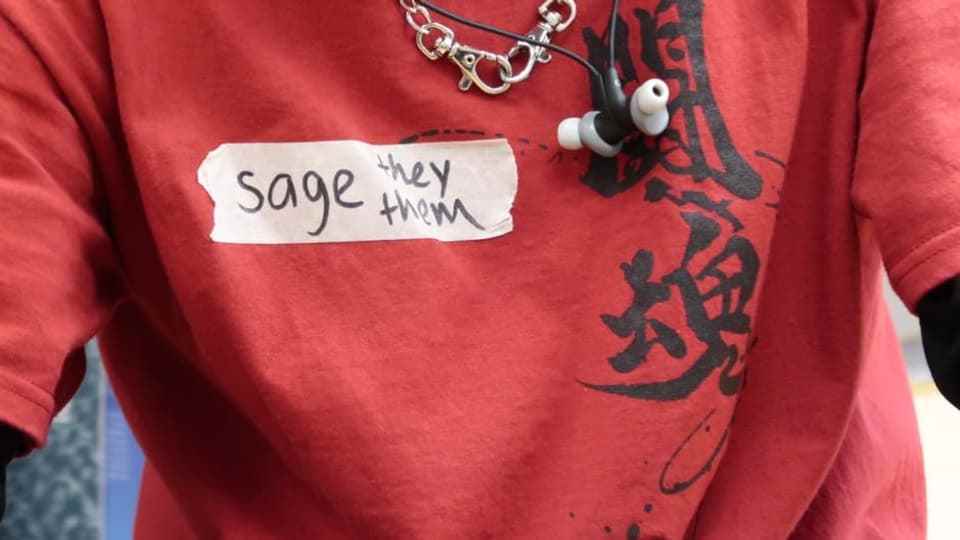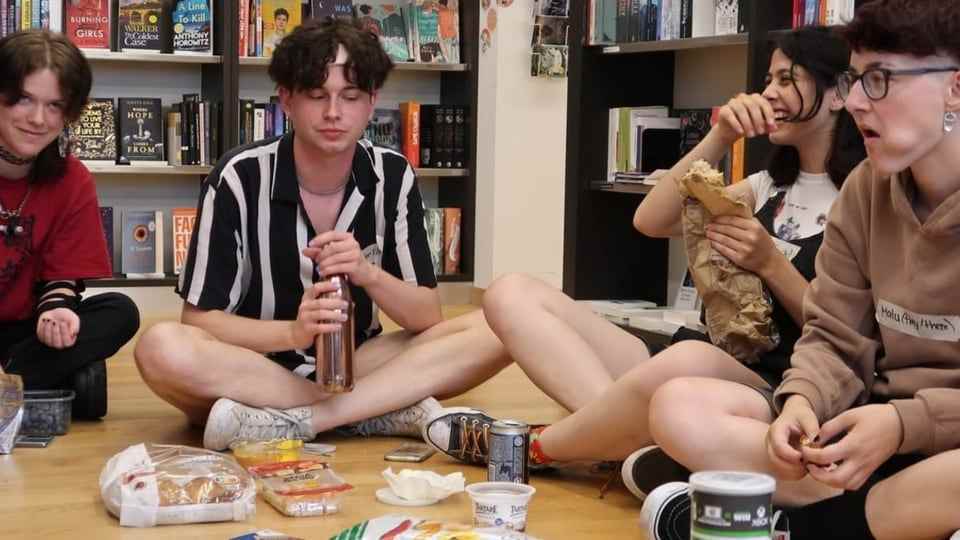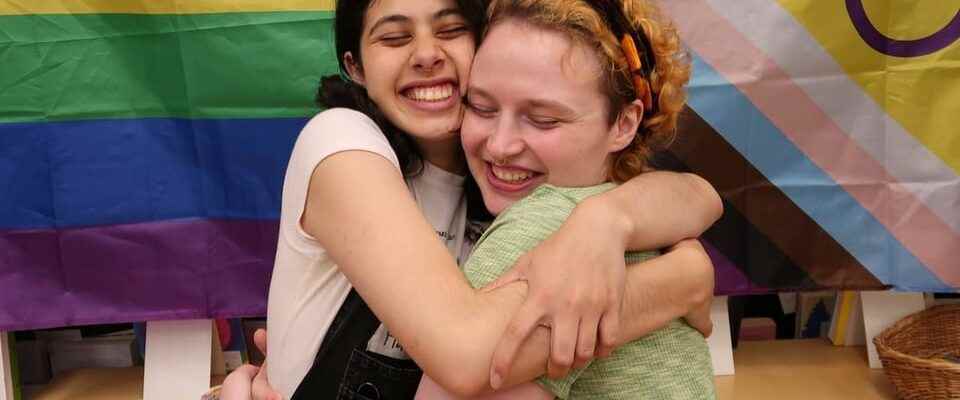contents
It is particularly difficult for homosexual, non-binary or trans people from rural areas. In Obwalden they know how to help each other.
Rún Studer grew up in Giswil, a village of 3,500 in Obwalden. Here, as in the rest of the canton, bourgeois elections are held and conservative values count for the most part. If you step out of line, you will feel it, says Studer. “Anyone who wore dyed hair at our school or attracted attention in any other way was completely put down.”
As a person who does not assign himself to any gender, Rún Studer steps out of line. On certain days, the 21-year-old feels more like a woman, while on others the masculine predominates. For a long time he didn’t know how to get in touch with like-minded people from the area.
Legend:
Hanna Lai (left) and Rún Studer founded Queerkaff Obwalden together. A meeting place for queer people from the country.
SRF / Lea Schuepbach
So they took matters into their own hands – Rún Studer and her colleague Hanna Lai. The two founded Queerkaff, a platform where lesbian, gay, bisexual, trans and non-binary people from Obwalden can exchange ideas. Initially, this existed exclusively on the Internet as an Instagram channel, but now people meet regularly, for example in a bookshop in Obwalden’s main town of Sarnen. This time, a special occasion brings the group together: the one-year anniversary of Queerkaff.
make friends
It is celebrated with cake and lots of rainbow decorations. There are colorful stickers with encouraging messages: “Gsehsch guet us!”, “Alli bodies are gueti bodies” or “You’re great.” The participants wear a tag on which their name and their preferred pronouns can be read. She/her, he/him or they/them stands there. With Rún Studer: “All”.

Legend:
When you meet, you introduce yourself and your name with your preferred pronouns.
SRF / Lea Schuepbach
“Of course, gender issues and sexuality are discussed when someone is finally there to talk to about it,” says Hanna Lai. But being queer is by far not the only topic at the meetings. “We talk about our favorite series or how things are going at work. It’s about making friends.”
Against rural exodus of queer youth
Because this is so difficult in the country, many queer people from Obwalden move to the city. The 23-year-old Hannes, for example, who now lives in Zurich and is visiting Sarnen for Queerkaff. “When I was 14 and realized I was gay, I felt like I was the only one around.” He felt alien.

Legend:
As a young gay man from Obwalden, Hannes (striped shirt) felt exotic, he felt at home in Queerkaff.
SRF / Lea Schuepbach
This shows what a positive influence a platform like Queerkaff can have. It shows you that you are not alone. “Rún and Hanna belong to the first generation of queer people who didn’t have to leave Obwalden to find like-minded people,” says Hannes. They would have simply founded their «Bubble» themselves. “I’m incredibly proud of her.” The Queerkaff could also be seen as a kind of commitment against the rural exodus of queer young people.
It’s the first generation of queer people who didn’t have to move away from Obwalden.
Rún Studer himself struggled for a long time with the decision to stay in the village or move away. “A year ago I could not have imagined staying here.” Finally, the admission: “I don’t have to go.” When she returns home from work by bike in the evening, she feels good. “It is beautiful here.”
